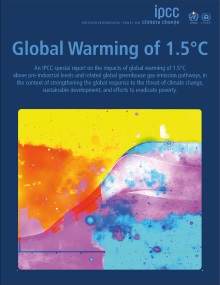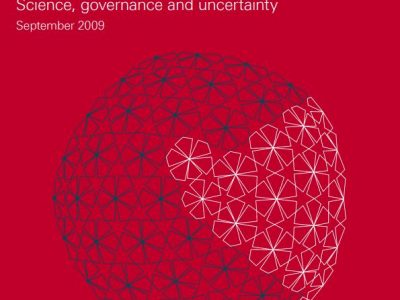Academia
Legal Planeteer Ann Carlson Joins Biden Administration
UCLA Environmental Law Professor Named NHTSA General Counsel
President Joe Biden has appointed UCLA environmental law professor–and frequent Legal Planet contributor–Ann Carlson to serve as General Counsel of the National Highway and Traffic Safety Administration (NHTSA). NHTSA, part of the U.S. Department of Administration (USDOT), plays a key regulatory role in charting federal transportation policy. Professor Carlson has anchored UCLA School of Law’s …
Continue reading “Legal Planeteer Ann Carlson Joins Biden Administration”
CONTINUE READINGNew Fellows Join the UCLA Emmett Institute
Adrien Abecassis and Beth Kent bring expertise in international diplomacy and environmental justice to UCLA’s environmental law programs.
Belated introductions are due for two new fellows who joined the UCLA Emmett Institute this summer, Adrien Abecassis and Beth Kent. Abecassis and Kent join four other Emmett Institute fellows, Charles Corbett, Benjamin Harris, Jesse Reynolds, and Siyi Shen, in limited-term faculty appointments at UCLA Law, conducting research, teaching classes, and supporting our public service. …
Continue reading “New Fellows Join the UCLA Emmett Institute”
CONTINUE READINGThe IPCC Misses the Mark on Solar Geoengineering
The Intergovernmental Panel Climate Change poorly portrays the “institutional and social constraints to deployment related to governance”
Not long ago, I re-read the top-level messages from the Intergovernmental Panel Climate Change (IPCC) on solar geoengineering’s governance issues. The Summary for Policymakers of most recent broad report, Global Warming of 1.5°C (SR1.5), says, in full: Solar radiation modification (SRM) [i.e. solar geoengineering] measures are not included in any of the available assessed pathways. …
Continue reading “The IPCC Misses the Mark on Solar Geoengineering”
CONTINUE READINGTaking Technology Seriously in Global Environmental Politics
A special issue on new technologies is now available
I am proud to announce a special issue of Global Environmental Politics on new technologies, edited by Simon Nicholson of American University and me, is now available. We write in the introductory essay: Human beings are at once makers of and made by technology. The ability to wield tools was an essential ingredient in propelling an …
Continue reading “Taking Technology Seriously in Global Environmental Politics”
CONTINUE READINGThe Danger of Climate Change Deadlines
Essential targets set by some of the world’s leading climate scientists and policymakers just passed. Now what?
Seven prominent figures in the global climate change policy discourse published an opinion essay in Nature. In “Three years to safeguard our climate,” they set a deadline for key targets to be met in order to stay on track to meet the Paris Agreement’s global warming goals. The notable thing is that the essay was …
Continue reading “The Danger of Climate Change Deadlines”
CONTINUE READING(Still More) Bad News on the Doorstep
New Reports Document Accelerating Wildlife Extinctions, Global Deforestation Trends
While public attention in recent weeks and months has understandably focused on the COVID-19 pandemic and the racial justice shockwaves triggered by George Floyd’s tragic death, another disaster continues apace. This week the New York Times published two alarming stories documenting the accelerating decline of our global environment. The first, entitled “Extinctions Are Accelerating, Threatening …
Continue reading “(Still More) Bad News on the Doorstep”
CONTINUE READINGTrees Will *Not* Solve Climate Change
The authors of a controversial, influential paper backtrack — again
Last summer, I pointed to a then-new paper in Science that concluded that planting trees could remove two-thirds of historical anthropogenic carbon dioxide emissions from the atmosphere at very low costs. At the time, I characterized the claims in it and the associated media communications as “misleading, if not false, as well as potentially dangerous.” …
Continue reading “Trees Will *Not* Solve Climate Change”
CONTINUE READINGNonstate Actors Could Help Govern Solar Geoengineering
Governments are not acting; maybe others could — and should
Although reductions in greenhouse gas emissions continue to be inadequate to prevent dangerous climate change, solar geoengineering appears able to substantially reduce climate risks. More research, including outdoor experiments, is needed to reduce critical uncertainties. This could pose some environmental risks and — arguably more importantly — will raise diverse social concerns, such as research …
Continue reading “Nonstate Actors Could Help Govern Solar Geoengineering”
CONTINUE READINGWhat Do Tomorrow’s Leaders Think About This Mess?
Listening to student voices on the pandemic, climate change, and the future
One thing I’ve always loved about teaching is the opportunity to see important issues through my students’ eyes. So for my last Climate Law and Policy class at UCLA Law this week, I asked my students to tell me what they are thinking about the future of climate policy in light of today’s global circumstances, …
Continue reading “What Do Tomorrow’s Leaders Think About This Mess?”
CONTINUE READINGRichard Epstein Strikes Again
Once again, the famed libertarian law professor offers wildly offbase advice.
Having previously pooh-poohed the dangers of the coronavirus, Richard Epstein is now calling for an immediate end to social distancing and business shutdowns. It’s unfortunate that he has chosen to dig himself deeper into a hole rather than admitting his earlier mistake and moving on. As I discussed in a previous post, Epstein initially predicted …
Continue reading “Richard Epstein Strikes Again”
CONTINUE READING











